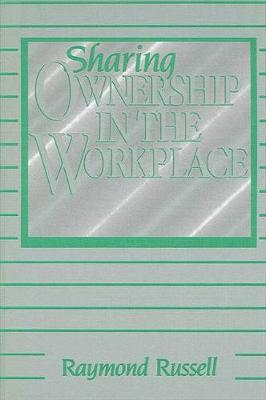SUNY series in the Sociology of Work and Organizations
1 total work
Employee ownership is the fastest growing organizational trend in American business. Instances of workers buying out closing plants, unions granting wage concessions in exchange for an employer's stock, and corporations using employee stock ownership as a defense against takeovers are occurring more frequently. But is the movement toward employee ownership a significant new trend or a repetition of past mistakes?
Sharing Ownership in the Workplace traces the history of employee ownership in the United States and Western Europe to its incipiency in the nineteenth century. The findings are disturbing—labor-owned business tend to revert to conventional organizational structure. This book examines this phenomenon, an understanding of which is crucial for assessing the prospects of the emerging generation of employee-owned firms. It presents three contemporary case studies of businesses that have been employee owned for generations—scavenger firms, taxi cooperatives, and professional group practices—to determine what causes them to fail and what makes for successful labor-controlled operations.
Throughout Russell integrates various ideological perspectives on worker-owned organizations, citing theorists as diverse as Karl Marx, Max Weber, Sidney and Beatrice Webb, Louis Kelso, and Peter Drucker. Special attention is paid to the processes that lead to employee ownership, cause it to spread, and either to endure or to degenerate over time.
Sharing Ownership in the Workplace traces the history of employee ownership in the United States and Western Europe to its incipiency in the nineteenth century. The findings are disturbing—labor-owned business tend to revert to conventional organizational structure. This book examines this phenomenon, an understanding of which is crucial for assessing the prospects of the emerging generation of employee-owned firms. It presents three contemporary case studies of businesses that have been employee owned for generations—scavenger firms, taxi cooperatives, and professional group practices—to determine what causes them to fail and what makes for successful labor-controlled operations.
Throughout Russell integrates various ideological perspectives on worker-owned organizations, citing theorists as diverse as Karl Marx, Max Weber, Sidney and Beatrice Webb, Louis Kelso, and Peter Drucker. Special attention is paid to the processes that lead to employee ownership, cause it to spread, and either to endure or to degenerate over time.
